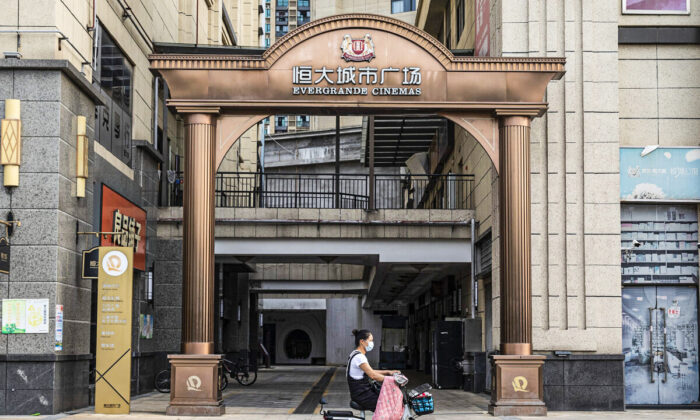
News Analysis
Evergrande’s spiraling debt crisis, and the global unease its woes have fomented, are largely due to mismanagement and deceptive practices on the part of Chinese Communist Party (CCP) leadership who have pursued policies without regard for the complex interplay of market forces in Asia, according to observers.
Any attempt to chart a way out of the present mess through restructuring or debt relief needs to be cognizant of these underlying factors and the likelihood that CCP corruption may complicate any restructuring efforts, they say. Chinese leader Xi Jinping’s ostentatious show of opposing corruption is, to a large extent, a mask for a complex tangle of shady dealings in both the state and public.
As Evergrande continues its string of desperate maneuvers in an effort to buy time to reach a deal with creditors—recent ploys include making late interest payments on its bonds last week and this week—more people around the world are wondering how the real estate conglomerate could have veered so close to one of the biggest defaults in corporate history.
In the context of China, where the CCP exerts wide and arbitrary powers over public and private players, it is impossible to overlook the Party’s role.
“ current crisis in China’s real estate sector started with the government’s policy shifts and will end with the government’s policy shifts,” said Xiaohua Yang, a professor of international business and director of the China Business Studies Initiative at the University of San Francisco’s School of Management.
It is well to recall that the conglomerate began amassing such huge debts in a context where CCP leaders made convenient use of the traditional preference of many Chinese for tangible, brick-and-mortar investments, such as real estate. Such preferences have deep roots in Chinese culture, Yang said. But in the Evergrande debacle, they have not served the public’s best interest.
“For a number of years, the Chinese regulatory environment in fact enabled the booming of the real estate sector with a series of policy changes such as relaxed lending requirements for real estate developers, using the sector as a driving force to stimulate economic growth, especially after the 2008-2009 global recession,” Yang said. Players in the real estate market, such as Evergrande, jumped into the breach by leveraging their ability to borrow and invest, he added.
But the government’s relaxing of lending requirements quickly led to a dynamic where Evergrande overborrowed and branched out into sectors where it had little expertise, such as electric vehicles. At a certain point, it became hard to say what exactly Evergrande was, given the company’s presence in an increasingly eclectic array of markets and fields.
“Evergrande was diversifying into EVs and other areas such as mineral water, at one point, and cosmetic surgery,” said Dylan Sutherland, a professor at Durham University Business School. “This is partly owing to its ability to raise financing via debt, and also because of massive government subsidies to strategic emerging industries—such as EVs, batteries, artificial intelligence, biotech, 5G, semiconductors, etc.—making them attractive,” Sutherland added, noting that the rise of industrial guidance funds is encouraging many new entrants into the market.
Either the CCP wanted to encourage economic development but lacked the economic sense to anticipate what might result from the interplay of all these market forces, or it chose to act recklessly out of a will to divide and conquer. Whatever its motives, an overextended Evergrande is the result, Sutherland explained.
“Large, debt-laden, poorly run, opportunistic diversified conglomerates are not really what central policymakers want, but are a byproduct of policy and the economic environment,” Sutherland said.
A sound economic policy might have been more selective and might have provided opportunities for more focused, specialized firms such as Huawei, whose R&D capabilities are tried and tested and which could have established a sounder position in emerging industries, Sutherland noted.
Evergrande was on a path toward disaster, but many Chinese, trusting the government to do the right thing and protect their interests, did not see which way the wind was blowing. Beijing did not match its putative concern for the people with meaningful policy changes when there was still time to turn the ship around.
“ government appeared to be very concerned and were deliberating on policies as the real estate developers were driving so many people out of the housing markets by shooting the housing prices to the sky and resentment and hate for the wealthy were rising,” Yang said.
Corruption
problems were acute even before the onset of the global COVID-19 pandemic complicated things massively. Compounding the CCP’s economic mismanagement even further is the issue of corruption, observers said.
“Political elites are linked to some of the largest (now failed) conglomerates—Anbang Insurance Group and HNA Group stand out,” Sutherland noted.
Although in theory, Chinese officials have been seeking to curtail the excesses of big debt-laden conglomerates like HNA and Anbang Group, the close relationships of these firms to political elites have made this a tricky undertaking, Sutherland said. It is important to stress here that that corruption at the provincial and local levels also plays a role where relations between officialdom and these firms are concerned.
“It takes time to deal with their business models, and only top leaders can enforce the steps required. But moving the economy away from real estate will not be an easy transition, given the massive vested interests of local governments that rely on property sales for income,” Sutherland said. Hence a power struggle may be underway between high-level elites who can no longer ignore the risks to national and international financial stability that the debt-ridden firms pose, and lower-level officials who do not wish to lose lucrative kickbacks.
“So, dealing with the problem involves multiple challenges. One can only imagine that the pandemic has made it harder as well to tackle policy problems,” he added.
Acknowledging that it is hard, at this point, to predict how things will play out and what will ultimately happen to Evergrande’s assets, Sutherland sees a managed selloff, as happened in the case of HNA, as one possibility.
Yang envisages a similar scenario. “I can see Evergrande coming out of this, maybe not so glorious as before, but slim and given a chance to rebuild. Maybe that will be good for the country and the company,” he said.
Whatever happens, the CCP may pay a dear price in allowing the crisis to snowball.
“China, being such a huge country with 1.4 billion people, faces a unique situation. Any unrest and upset will go viral quickly and affect the country and the rest of the world,” Yang said.

10hr
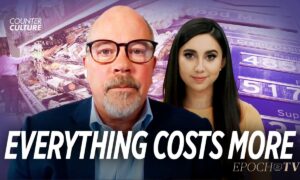
13hr
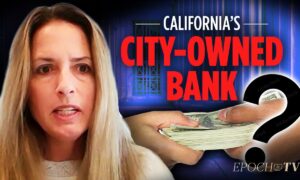
14hr
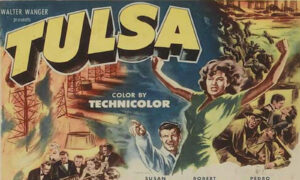
20hr
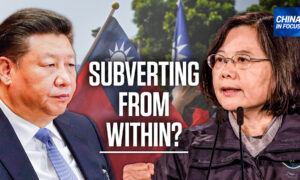
1d

1d
Pezou : CCP Mismanagement to Blame for Evergrande Crisis, Business Experts Say
